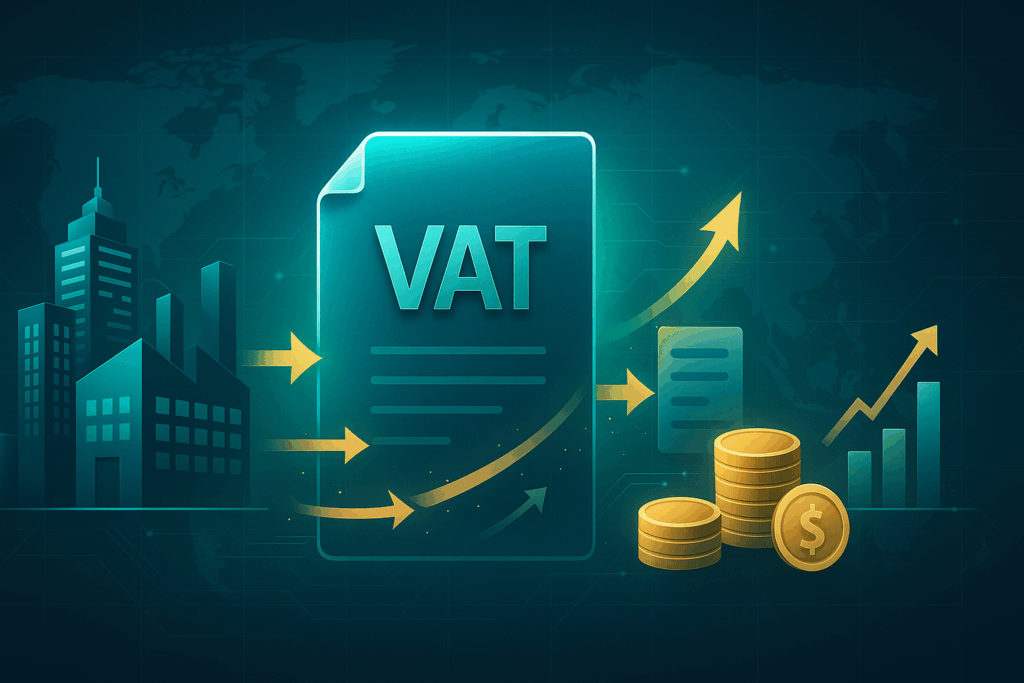Introduction
The adoption of IFRS 9 Financial Instruments brought a major shift in the way companies account for financial assets, liabilities, and credit losses. Since its mandatory application in 2018, IFRS 9 has replaced IAS 39 and introduced a forward-looking expected credit loss (ECL) model, along with new rules for classification, measurement, and hedge accounting.
For many organizations particularly banks, financial institutions, and corporates with significant receivables implementing IFRS 9 is both complex and resource-intensive. This is why businesses increasingly rely on IFRS 9 implementation support to ensure accurate compliance, audit readiness, and transparent financial reporting.
At Fathalla-FBC, we provide tailored IFRS 9 implementation services that help companies align with global standards while maintaining operational efficiency.
What Is IFRS 9?
IFRS 9 is the International Financial Reporting Standard governing financial instruments. It introduces three major areas of change:
Classification and Measurement
Financial assets are categorized into amortized cost, fair value through other comprehensive income (FVOCI), or fair value through profit or loss (FVTPL).
Classification depends on the business model and cash flow characteristics.
Impairment (ECL Model)
Replaces the incurred loss model with a forward-looking Expected Credit Loss model.
Requires recognition of credit losses earlier and across all financial instruments.
Hedge Accounting
Aligns hedge accounting with risk management practices.
Provides greater flexibility and transparency in hedging strategies.
Challenges in IFRS 9 Implementation
Complex Data Requirements
Companies must collect historical, current, and forward-looking data.
Integration of credit risk systems and financial reporting systems is often required.
Modeling ECL
Probability of Default (PD), Loss Given Default (LGD), and Exposure at Default (EAD) must be calculated.
Requires advanced statistical and economic modeling.
Systems and Processes
Legacy IT systems often struggle to meet IFRS 9 requirements.
Automation and controls must be enhanced.
Compliance and Audit Readiness
Regulators expect transparent methodologies and clear documentation.
Auditors scrutinize assumptions, forward-looking data, and governance.
Scope of IFRS 9 Implementation Support
1. Gap Assessment & Readiness Review
Evaluate existing policies, data, and systems against IFRS 9 requirements.
Identify gaps and recommend remediation steps.
2. ECL Modeling & Methodology
Develop models for 12-month and lifetime ECL.
Incorporate macroeconomic forecasts and stress testing.
Validate assumptions with industry benchmarks.
3. Systems & Data Integration
Support in integrating risk, finance, and IT systems.
Implement automated workflows for ECL calculations.
4. Policy & Documentation
Prepare IFRS 9-compliant policies and procedures.
Draft disclosures for financial statements.
5. Training & Capacity Building
Train finance and risk teams on IFRS 9 requirements.
Provide ongoing advisory for updates and audits.
Benefits of IFRS 9 Implementation Support
Full Compliance: Meet regulatory requirements with confidence.
Transparency: Improve investor and regulator confidence through clear disclosures.
Risk Management: Better understanding of credit risk and earlier recognition of losses.
Efficiency: Streamlined processes and systems integration.
Audit Readiness: Comprehensive documentation for smooth external audits.
Who Needs IFRS 9 Implementation Support?
Banks and Financial Institutions managing large loan portfolios.
Insurance Companies with complex investment portfolios.
Corporates with significant trade receivables.
Multinational Enterprises reporting under IFRS standards.
Why Choose Fathalla-FBC?
At Fathalla-FBC, we combine deep IFRS expertise with practical implementation skills:
Specialized ECL modeling support for banks and corporates.
End-to-end advisory from gap assessment to final disclosures.
Integration of local market knowledge (Egypt, Saudi Arabia, Turkey, Germany) with global IFRS standards.
Ongoing support to address regulatory changes and audit requirements.
We act as partners, not just consultants, guiding organizations through every stage of IFRS 9 implementation.
FAQs
1. What is the difference between incurred loss and expected credit loss models?
The incurred loss model recognizes losses only after default occurs, while the ECL model requires forward-looking recognition of potential losses.
2. Is IFRS 9 only for banks?
No. It applies to all entities with financial assets, including corporates with receivables.
3. How often should ECL models be updated?
At least annually, and whenever significant economic or portfolio changes occur.
4. Can smaller companies apply simplified approaches?
Yes. IFRS 9 allows simplified models for trade receivables and lease receivables.
Conclusion
IFRS 9 has fundamentally changed financial reporting by introducing a forward-looking approach to credit loss recognition, classification, and risk management. Its implementation is challenging, but with the right expertise, companies can not only comply but also strengthen transparency and resilience.
Partnering with Fathalla-FBC ensures seamless IFRS 9 implementation support, from gap assessment to ECL modeling and audit readiness. With our guidance, your organization can navigate complexity, comply with global standards, and build financial stability for the future.



